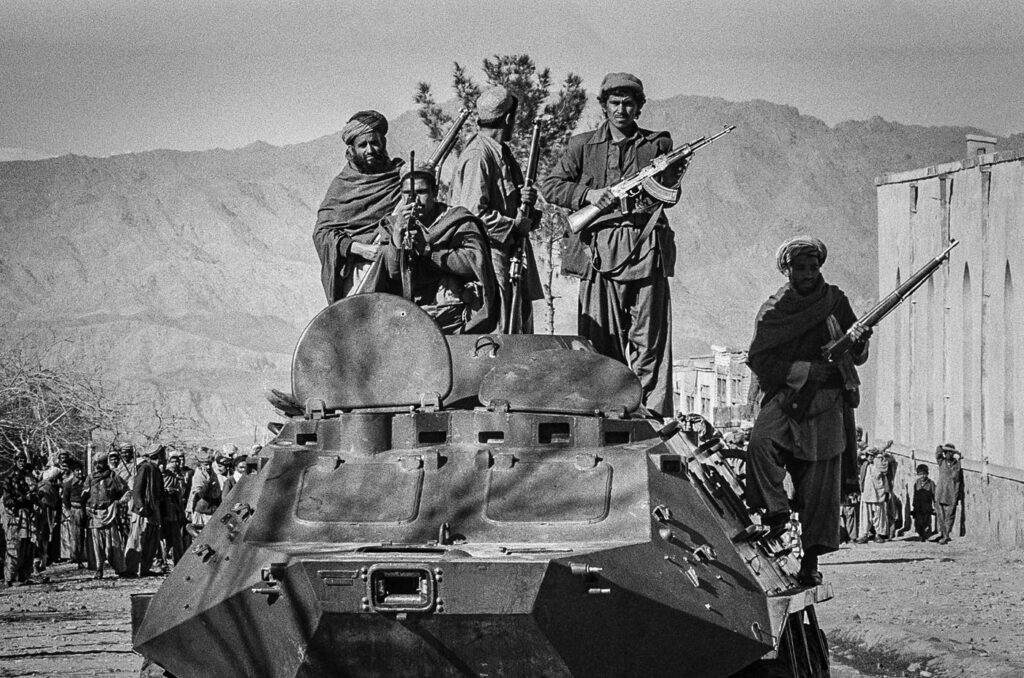
When the Soviet Union invaded Afghanistan in 1979, I was undertaking my last year of ‘O’ Level studies at Trinity School in Canning Town of East London, which has since become the Rokeby School of today. At that time, the GCSE qualification wasn’t yet born.
I had lived in Plaistow until the summer of 1979 when we moved to Golders Green. I was still allowed to undertake my ‘O’ Level studies at the same school and Barnet Council, my new borough, agreed to provide a free pass for one year which I could use for both London buses and underground trains. That was an excellent thing for me, which allowed me to travel a lot within certain London zones
Although I didn’t know much about politics and geography at that time, I was quite sympathetic to Soviet Communism as the idea of human equality was the ideal that appealed to me the most from a very early time in my childhood. I hated America for what they did to the native people, which I first learnt about in 1973 after coming to the UK and watching a cowboy film on TV and asking my older brother about the savages that were attaching good white men and women. And also because America was the epitome of Capitalism, exploitation and human inequality. In contrast, I believed the Soviet Union had eradicated exploitation and inequality, and the people in the communist blocks were happily enjoying equality, economic prosperity and social harmony.
But the Soviet invasion of Afghanistan on Christmas Eve in 1979 started to shatter what I believed, naively, that the communist state was some kind of equality heaven. From TV reports, LBC radio broadcasts and people discussing the topic I began to learn something about Afghanistan and about what the Soviet Union was all about. The western encouraged and supported worldwide Muslim reactions against the Soviet invasion also inspired me to join many protests. I attended a large protest in early 1980, from Hyde Park to the Soviet Embassy, which made me believe that the Soviets in Afghanistan would be defeated within a very short time.
My belief in the sure Soviet defeat was also the result of the western media’s portrayal of the ‘brave and undefeated Afghans’, including the fact that they repeatedly repelled British attempts to subdue them during the 19th Century. In the demonstrations and protests that I attended, I also became imbued with the Islamic feelings of solidarity with Afghan Mujahideen fighting against a superpower. Western media reports, including documentaries, brought home the news, regularly, of Afghan bravery and their highly-skilled, effective fightback against the mighty modern Soviet Army. My pride and belief in the ability of Afghan Mujahideen to defeat the Soviet army grew as the war progressed.
Then came the Soviet defeat and withdrawal in February 1989, which made me jubilant and I thought that Afghanistan would become a peaceful country. But to my disappointment and horror, instead of peace, the war continued, and this time, it became a civil war between the various Mujahideen groups and their warlords. They fought for several years until the Taliban came and took over the whole country by the end of September 1996. Although they established relative stability, it was clear that they were a different kind of group when they started to put restrictions on personal freedom that nobody could accept, especially stopping education for girls and eliminating them from public life.

My faith and pride in the Afghan Mujahideen’s struggles against the Soviet invasion, which dissipated due to the infighting and civil war, completely went down the drain when the Taliban rule began. Then came the horrible 9/11 attacks, which killed several thousand civilians from many parts of the world, including from my own country of origin, Bangladesh. Had the Americans focused on dealing with the Al Qaeda and Taliban, then broad support from the world, particularly from Muslims around the globe, would have been maintained. But the USA decided to take the opportunity created by the changed-environment, through the unimaginable Al Qaida attacks in New York, to achieve some other strategic objectives.
They decided to attack Iraq and carry out ‘regime change’ in that country. This caused the loss of a lot of the original sympathy and support they had around the world for their position and action in Afghanistan. America didn’t focus on Afghanistan but diverted its attention, killed hundreds of thousands of innocent civilians both in Iraq and Afghanistan, and lost support and sympathy around the world. I also believe that they engineered the civil war in Syria, mainly in conjunction with Israel, to divert their failures in Iraq and to create certain strategic advantages for Israel.
Now, after promising a large section of the Afghan people that America will stand by them – many of whom became very close to and dependent on America and the West in general by providing them with intelligence and collaboration – now have been abandoned to the brutal Taliban, who will now deal with many of them in merciless ways.
We have to fear for the worst, hope for the best and pray that sanity will prevail and some kind of compromise will be worked out that will start a new process of stability and positive developments in the country.
The actions of America and the West in Afghanistan and Iraq should teach us a lesson that they only work for their strategic goals and use and dispose of anyone and every one based on their strategic calculations. We have been fooled often and many times, but I hope we will learn lessons and never support western interventions anywhere in the world.